-
Posts
2,090 -
Joined
-
Last visited
Content Type
Profiles
Blogs
Forums
American Weather
Media Demo
Store
Gallery
Posts posted by wxmanmitch
-
-
Happy New Year! Here are 2024's weather numbers for my location 5 miles NW Readsboro, VT at 2,230 feet elevation:Average Temperature: 44.2° FLow Temperature: -6.3° F (12/22)High Temperature: 85.6° F (6/19)Total Precipitation: 57.73"Total Snowfall: 123.4"In other news, we're getting absolutely pounded by upslope now, probably close 1"/hour stuff. Had 2.5" of mashed potatoes overnight last night.
-
 4
4
-
-
On 10/1/2024 at 6:36 PM, backedgeapproaching said:
23-24 had an interesting distribution here in SVT too. I ended up with 11" more than Mitch, despite him probably averaging 40-50" more per season and only 25 miles south of me. Very weird and probably low prob of that happening again.
It was a weird winter. I was on the rain/snow line many times with rain after a 2-4", 3-5" snowfall while areas 25-30 miles north stayed snow more, despite being at lower elevation. I finished with 94" on the season, which is well below normal, but not at as bad as 2015-16.
-
30° F, SN/PL mix. 0.5" of snow and sleet accumulation. Getting some low level snow growth beneath the warm nose aloft as we get upslope flow from the east. I've seen this happen whenever we have a high inversion like this. Snowflakes are mostly needles and needle clumps. Getting the classic freight train sound just overhead wit some decent gusts mixing down. Grid power is out, on backup.
-
 1
1
-
-
Planning to chase this eclipse at a venue about 1 mile south of the Canadian border in Newport, VT. The closest I was able to snag a hotel this late in the game was in Franconia, NH by Cannon Mountain. I'm surprised I was able to snag a room only 10-15 miles from the southern edge of totality that wasn't a huge price gouge.
Hoteling it in the hopes to make the drive to and from totality shorter than day tripping from here as traffic is likely going to be a total clusterf***, especially after totality ends.
I chased the August 21, 2017 totality in Casper, WY, but booked late and there were no hotels anywhere in or around totality so I flew to Denver, rented a car, and stayed a bit up I-25 from Denver. I got to Casper in 3-3.5 hours as I left my hotel around 2 AM, but the return took 10+ hours, and this was completely avoiding I-25. It was totally worth it though and hope the weather cooperates this go around. Early signs look decent, but there could be some high clouds coming in from the west out ahead of the next system.
-
 3
3
-
-
Scalp fest has begun. PL, 31° F. There was a coating of snow last night during the evening from the WAA aloft once the column cooled enough to support RA to SN.
Thinking 6-10" of sleet and snow here by Friday AM. Of course the wildcard is how quickly does that warm nose aloft collapse and we go from PL to SN. If I'm SN by 06z tomorrow, I could see 12"+. Mid level fronto tomorrow AM is also another wildcard.
-
 4
4
-
-
6.8" of sleety, slushy snow that froze into a glacier overnight last night. 2.15" liquid equivalent.
It was a weird event in that the usual mountain vs. valley snow dipoles didn't exist with this storm as it was pretty much all overrunning with a weak low and midlevel wind field. It's not everyday when Bennington (10") gets more from a synoptic snowstorm than I do. Purely a latitudinal gradient with snow increasing from SSE to NNW around here.
82.6" for the season, while Landgrove at 1,900' about 30 miles NNE of my location has had 129.4". Usually he and I quite similar, but I've been on the wrong side of the gradient several times this winter...
-
 3
3
-
-
9.4" storm total with 1.74" LE. Like a number of storms this winter it would've been good if it was a bit colder. Upslope part of the storm underperformed in S VT with only 3.2". Alas, something is better than nothing...
-
 2
2
-
-
6.2" of snow with 1.43" of LE. There's some sleet in it, plus a slight glaze resulting from some freezing rain/drizzle during the dry slot overnight last night. Now let's see if I can do a daily double with the snow on 0.3" liquid by tomorrow from the upslope...
-SN, 30.6° F. High was 32.1° F.
-
 3
3
-
-
5.9" as of 12:30 AM EST. Changeover to straight sleet has occurred so this should about do it for the front end. 29.5° F.
-
 1
1
-
-
4.5", heavy snow and wind. 29.5° F. Flakes occasionally aggregate and try to mix with sleet, but so far high UVVs and precipitation have been keeping midlevel WAA at bay. Very dense snow, probably a 6-7:1 SLR, but actually rather dry. Not loading up on trees or utility wires.
-
 3
3
-
-
Dumping heavy snow, 2" when I got home at 8 pm, probably 2.5-3" now. Some aggregation going on. 29.6° F.
Just rain with some sleet mixed in Williamstown and North Adams, MA.
-
 4
4
-
-
I had two squalls today dropping 2.9" collectively. I had another 0.5" from one last night. This clip is from the height of squall number 2, which was shorter but more intense than squall 1.
-
 10
10
-
-
Happy New Year! Here are 2023's weather numbers for my location 5 miles NW Readsboro, VT at 2,230':
Average Temperature: 44.0° F
Low Temperature: -25.4° F (2/4)
High Temperature: 83.0° F (7/6)
Total Precipitation: 75.94"
Total Snowfall: 124.1"
-
 6
6
-
-
-
Season's Greetings! I will admit I haven't been on here much of late, but Twitter/X has been such a s***show since Musk's hostile takeover of the platform that gleaning weather info off of there has become an increasingly difficult proposition.
My feed which was once a global town square of sorts with weather enthusiasts and professionals interacting with each other has turned into a cesspool of misinformation and junk that I have zero interest in. That said, as bad as it has gotten, it is still the best of the major social platforms for late breaking weather info as there are still relevant posts in my feed from time to time, and not the several days old stuff that I typically see on Facebook. Thanks to Musk X is dying, and may not be around much longer for better or worse IMO.
I had high hopes for this winter with a weakening Modoki style El Niño taking hold, but those are beginning to fade some in light of the fact that we've had our warmest and least snowy December since 2015, and I'm not convinced this upcoming colder pattern can deliver the goods. It will be better than the status quo regardless. Hopefully we can get a good back loaded winter.
I struck out with three storms earlier this month and late November with 32.5-33° F rain and "snain" that didn't accumulate to more than an inch of slop. Stratton and points north of there did considerably better with those. I guess this is payback for that epic 42" dump I had in mid March.
In other news I've finally got decent internet up here with the installation fiber optic internet (~1.2 Gbps down/1.1 Gbps up) that blows even Xfinity and Spectrum out of the water. The aforementioned companies would never bring their services to my area and the incumbent provider Consolidated Communications (formerly FairPoint) wouldn't bring in their own fiber service, Fidium. Being on the wrong side of the digital divide, many of Vermont's towns banded together to form a series of regional communication union districts (CUDs) to chase after federal broadband infrastructure money and form non-profit community operated ISPs. As one of the least served towns in my respective district, we were one of the first to get fiber from Deerfield Valley Fiber (DVFiber). It's so nice to be off of that 10/1 Mbps bonded DSL connection where websites loaded like it was 1999. That speed may have been adequate in 2003, but not in 2023.
I'll leave you with an epic sunrise shot from yesterday morning. It will be a totally brown Christmas here in the highlands of southern Vermont as well.
-
 12
12
-
 1
1
-
 1
1
-
 3
3
-
 4
4
-
-
149.4" season total. Pretty much an average year snowfall wise, thanks in part to that epic nor'easter in mid March that dumped 42" here.
-
4 minutes ago, Damage In Tolland said:
Where exactly is this dirt moving to?
A raised bed garden in the backyard. It had to be dumped on a tarp in the driveway as there's no way a dump truck can get to the edge of my backyard.
-
 2
2
-
 1
1
-
-
On 5/3/2023 at 10:11 PM, dendrite said:
Negaunee and Ishpeming are unreal. We talked about moving there once. lol
I've thought the same thing. I bet that closed Calumet Air Force Station up on the Keweenaw is a tremendous weenie spot too. But if I could move anywhere it would probably be Baker Mountain in Washington State.
-
 1
1
-
-
++BLFL (Heavy, heavy black flies), 71/52° F.
I don't think I recall them ever being this bad, and they're bad every year about now. There are literally dozens of them crawling on my arm at any given time if I spend anytime outdoors. Here I am looking like an idiot continuously helplessly waving my electric bug zapper tennis racquet thingy through the air. Nothing works against them.
Alas, yard work must get done and there's lots of dirt to move again this year. Tons of vernal pools for the black flies to just reproduce in thanks to that 42" snowstorm in mid March that had over 4" of LE.
-
 1
1
-
-
32/31, snow. About 1.3" so far. Nice fluffy flakes.
-
 3
3
-
-
1 minute ago, dendrite said:
Be careful melting them on the pellet stove. I did that earlier this year and I had it in a spot warm enough that the glue on the bottom melted a bit and water leaked out of that inner circle.
The cores were in a metal baking pan.
-
 2
2
-
-
1 minute ago, dendrite said:
That must have been a hell or a core to melt down. lol
I’m not sure how you even compressed that amount of paste in the stratus. Did it take 2 cores?
It took nearly 3. I pushed the cylinder into the snow as deep as the length of the cylinder and then used a spatula (as shown in the CoCoRaHS manual) to ensure the snow wouldn't fall out as I captured the core. I had to repeat 2 more times until I hit the board. The cores were then placed on a large metal baking pan to be brought inside for melting. I let them melt on top of the pellet stove for a while before measuring with the inner cylinder.
-
 6
6
-
-
2 minutes ago, dendrite said:
The mosquitoes are getting excited.
As are the black flies...
-
 4
4
-
-
My apologies for the delay in updating here, but we had a nearly 24 hour long Internet and phone outage and I have no cell service here.
Anyway, I had a 42.1" storm total with a 4.44" liquid equivalent (LE). I cleared my snow boards every 24 hours at ~4 pm. I had 1.0" (0.05" LE) on Monday, 30.4" (3.43" LE) yesterday, and another 10.7" (0.96" LE) today. LE on Tuesday and Wednesday was found by coring the snow on top of the snow board using the outer cylinder of the Stratus rain gauge and then melting it down as this amount of snow easily overflows the outer cylinder multiple times over. The melted water was then measured with the funnel and inner cylinder. Given the LE, the snow has a definite blue tinge to it. Dry but dense at this elevation. Paste in the valleys (where my electric and telecom services come from).
I measure multiple times a day but only clear the board once in 24 hours. These numbers represent the maximum amount recorded during that 24 hour period. In the case of Monday and Tuesday's measurements, the maximum depth was recorded at the 4 pm observation time as it was actively snowing, today it was 10.7" at 10 am. It stopped snowing around this time and by 4 pm it had settled to just under 10" on the board.
Given the liquid equivalent, I probably would've had over 48" if I cleared the board every 6 hours. Total depth on the ground is 55" as we had ~18" before the storm.
-
 19
19
-
 2
2
-
 1
1
-


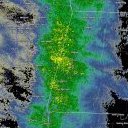
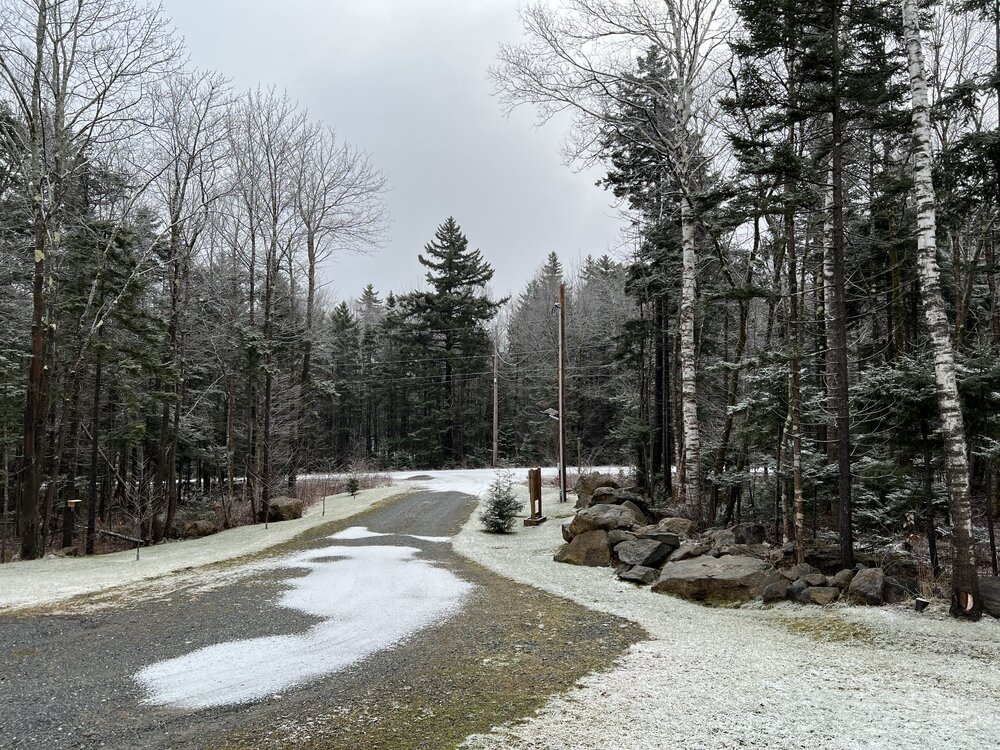
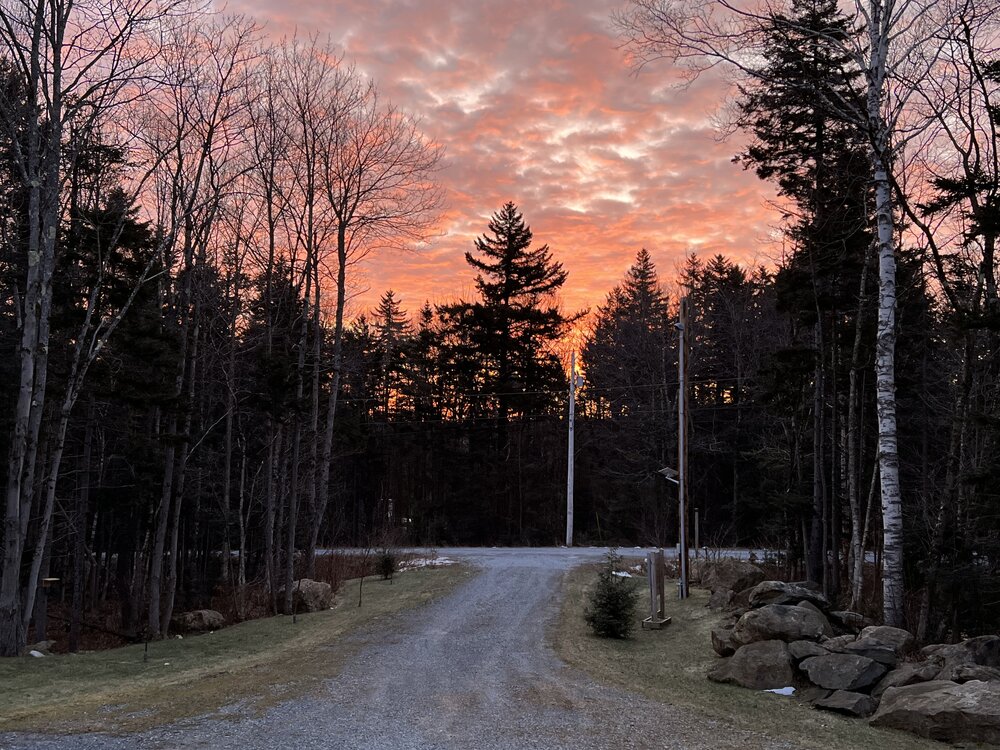
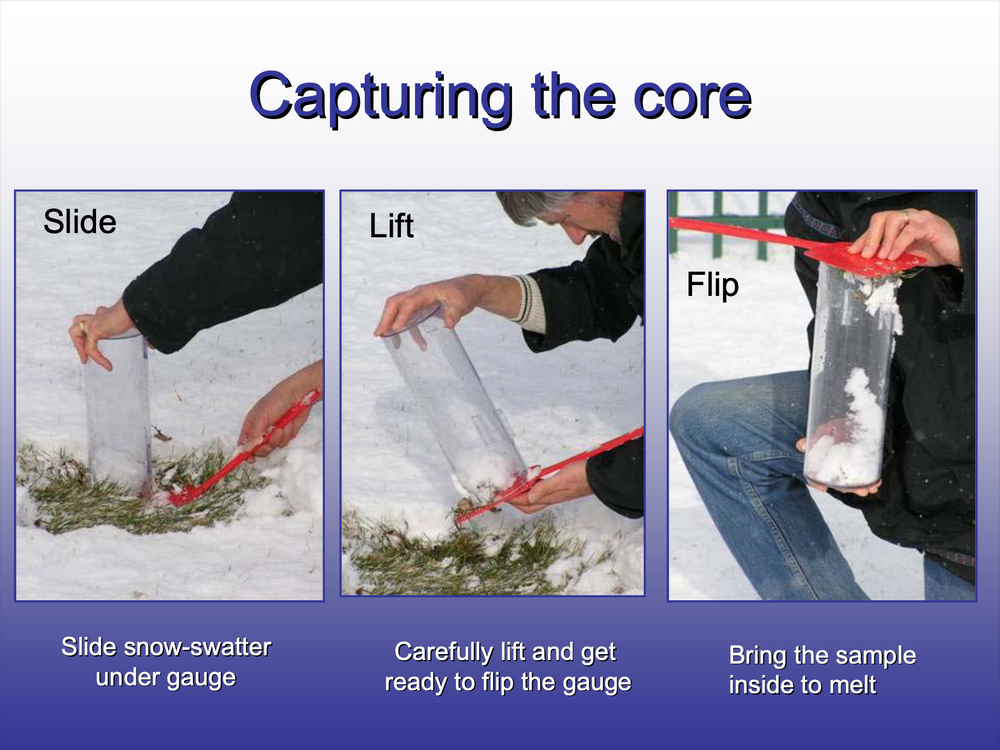
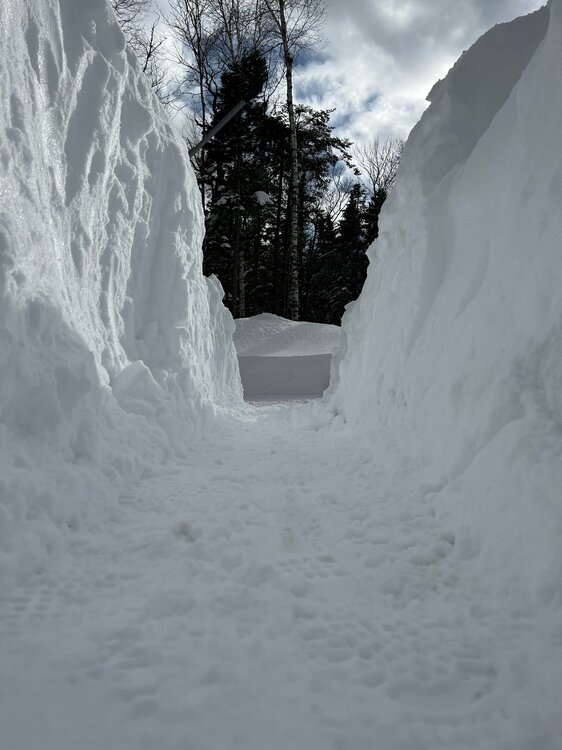
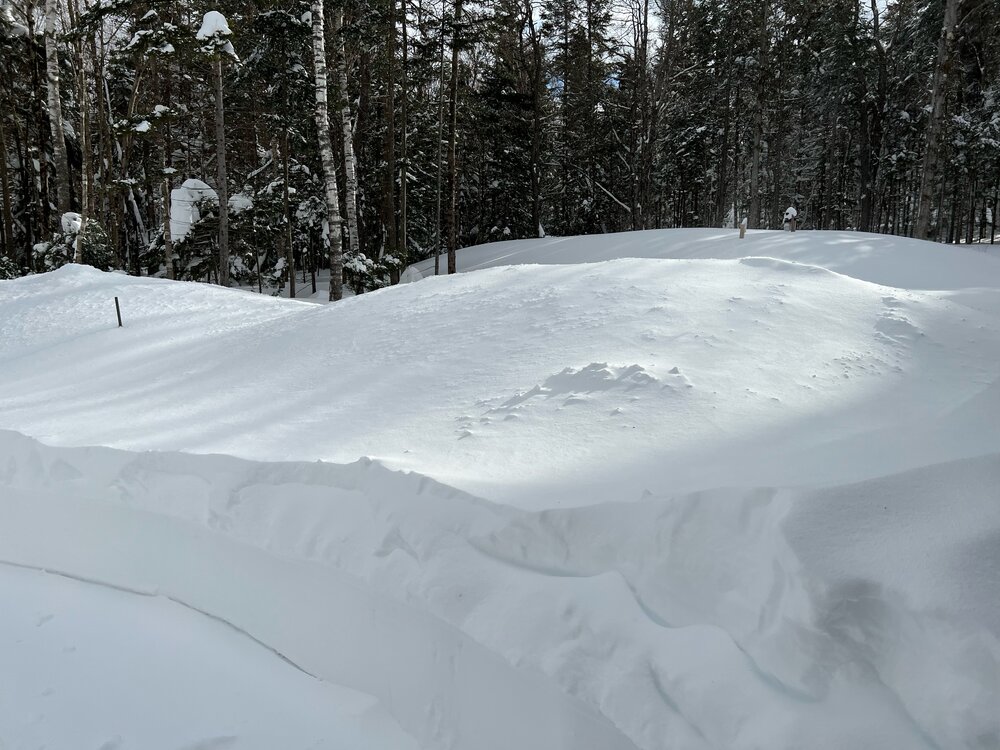
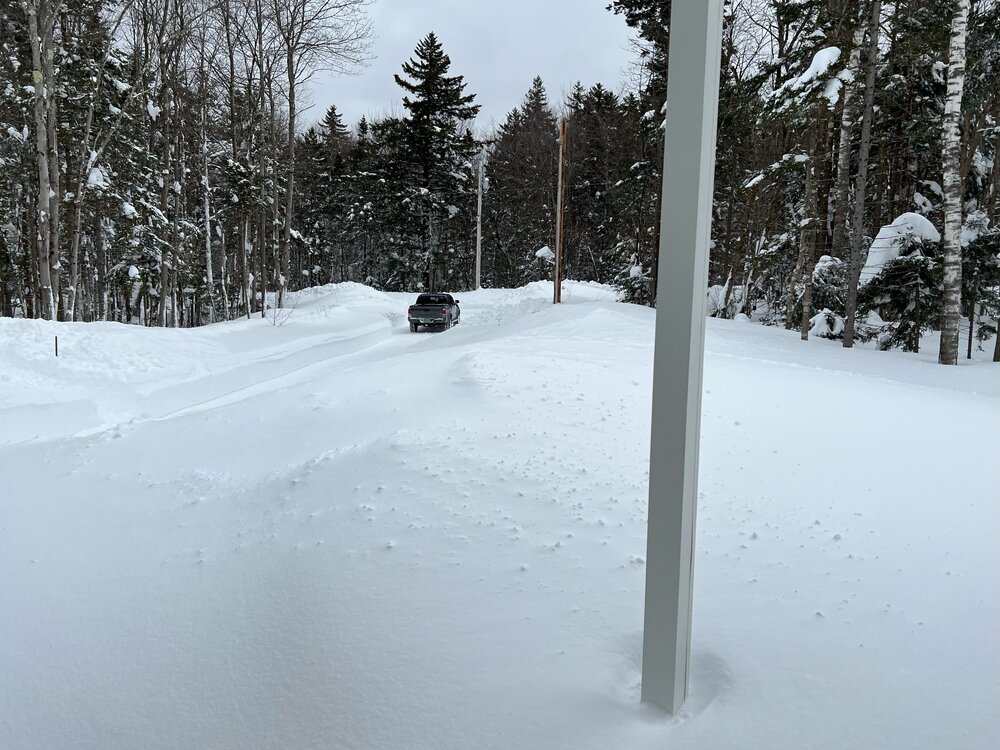
2024-2025 New England Snow
in New England
Posted
148.1" season total here, which is quite likely the final, but I will wait until June 1st before making it official.
In essence it was a decent (average to slightly above average snowfall), but not spectacular winter as there was consistent cold and no real cutters or thaws during the heart of the season. However, there were no big storms and it quit rather early. Just lots of clippers and doses of upslope thanks to a busy northern stream.
Peak snow depth was 32" in the third week of February.